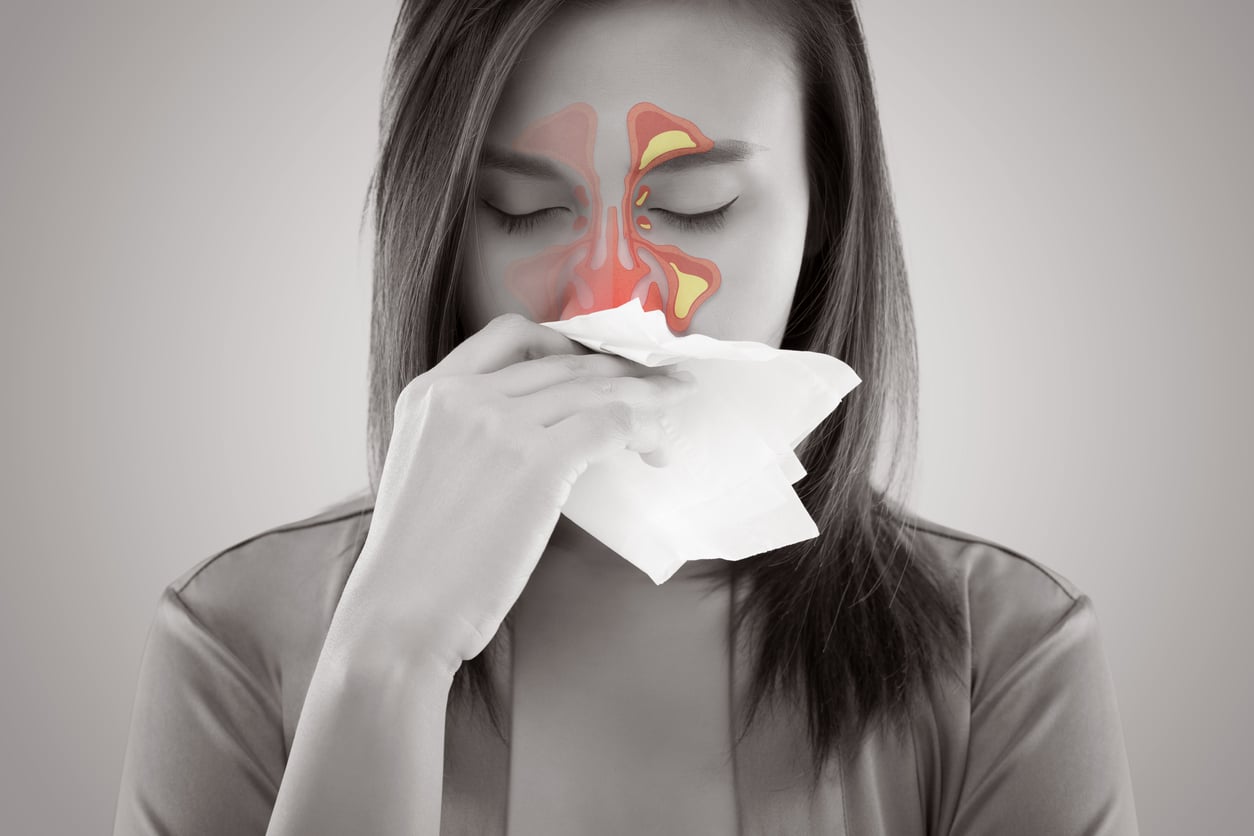Sinusitis is the official medical term for a sinus infection, a condition that occurs when the sinus passages become inflamed or blocked (usually due to the common cold or flu, allergies, irritants or other triggers) and mucus accumulates in the sinus cavities behind the face. As the mucus accumulates, it creates a breeding ground for germs and increases pressure inside the sinus cavities. That’s sinusitis.

Common Symptoms of Sinusitis
Here are red flags that point toward sinusitis (versus just a mild cold):
- Facial pain or pressure, especially when bending over
- Nasal congestion
- Thick, discolored mucus (yellow/green)
- Postnasal drip
- Headache (especially in the front, behind the nose and eyebrows)
- Reduced sense of smell or taste
- Sometimes fever, fatigue, sore throat, cough
How to Treat Sinusitis
Many mild cases of sinusitis resolve on their own without needing medical intervention. Some strategies you can use at home to alleviate discomfort include:
Hydration & Rest
Drink plenty of fluids (water, warm teas, broth). Mucus thins when you stay well hydrated, making drainage easier. Also, rest is an essential part of healing. Give your body time to recover and energy to fight the infection.
Steam & Warm Moisture
A hot shower or using a humidifier can help loosen congestion, reduce swelling in nasal tissues and soothe discomfort. Using a warm compress on your face will also help, and the warmth will help ease the discomfort and swelling.
Saline Nasal Irrigation
Using a saline (saltwater) rinse—such as a neti pot or nasal irrigation device—can flush out mucus, as well as any allergens and irritants that may be causing or exacerbating the infection.
Over-the-Counter Medications
Some OTC medications you can find at your local pharmacy or general store can help reduce symptoms. Look for:
- Pain relievers/anti-inflammatories: acetaminophen or ibuprofen eases pain and slows down inflammation.
- Decongestants (oral or nasal spray): help reduce nasal swelling—but use nasal decongestant sprays only short-term to avoid rebound congestion.
- Saline sprays: gentler than full irrigation but can still help moisten membranes.
Elevate Your Head
When you sleep, prop your head up a bit (e.g., with an extra pillow). This can help with drainage and reduce congestion at night.
Avoid Irritants
Try to avoid exposure to cigarette smoke, strong chemical fumes, heavy perfumes or environments with dry, dusty air. These can worsen inflammation and mucus production.
When to Seek Medical Help
If you’ve had sinusitis for more than a week and have tried all of the above with little relief, it may be time to seek medical help, like an ENT specialist. Especially seek help if symptoms worsen or become severe, like a high fever. Call South Valley Ear Nose & Throat – West Jordan today to find out more and begin treatment for your sinus infection.